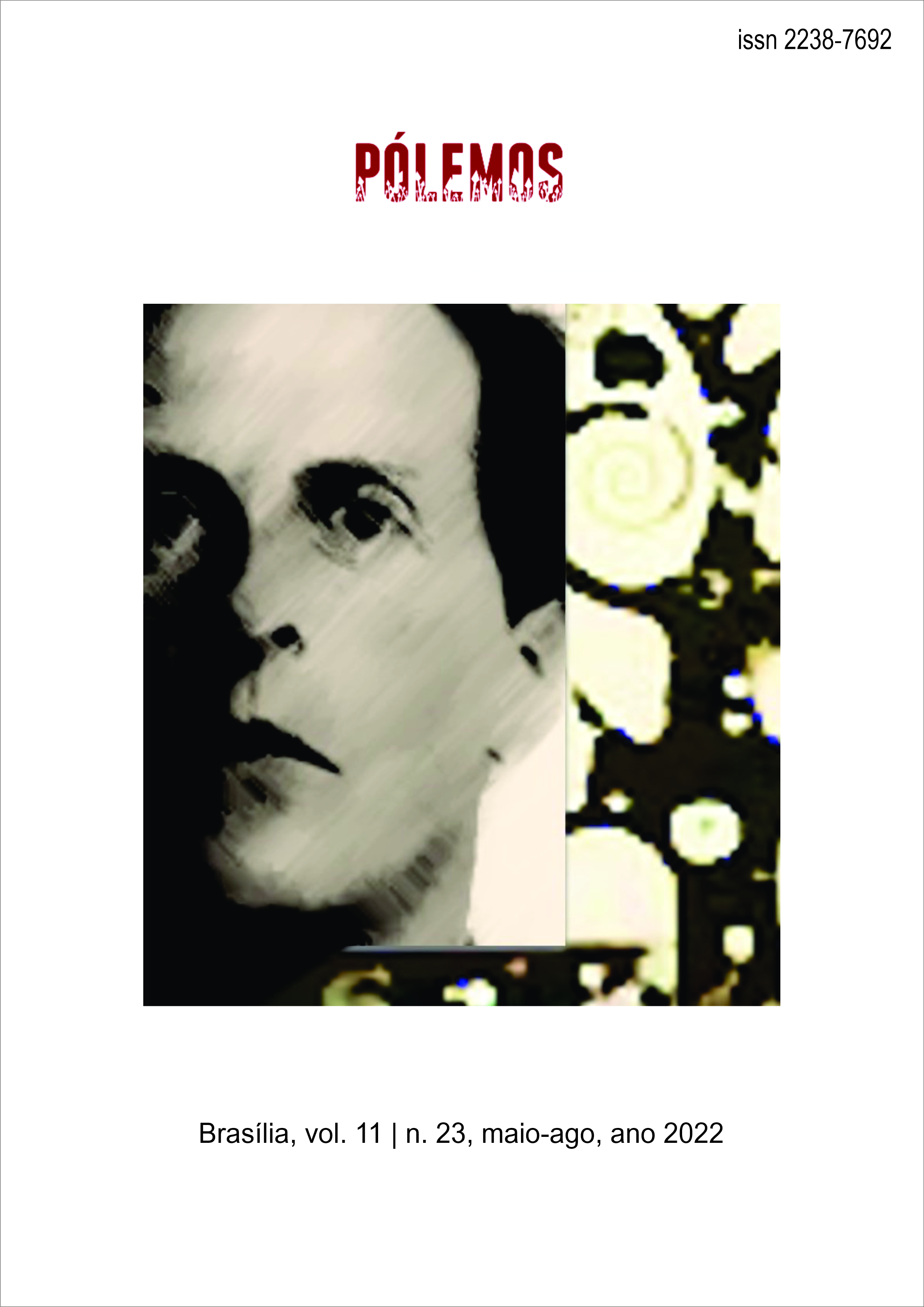ON THE AFFECTIVE ASPECTS OF PYRRHONIAN SKEPTICISM
DOI:
https://doi.org/10.26512/pl.v11i23.44583Keywords:
Emotions. Passions. Skepticism.Abstract
The purpose of this paper is to investigate the emotional or affective consequences of Pyrrhonian skepticism. The Pyrrhonian reflection on emotions is quite limited, occurring largely in relation to the affective states of the one who has suspended judgment on all philosophical questions, the so-called complete skeptic. In this way, ataraxia, the absence of disturbance, receives prominence both because of its reference to affective states and because it is said to be the goal of skepticism. Ataraxia will serve as a basis for thinking about how the skeptic's affective mental life can be, that is, what this absence of disturbance implies for the emotions. It concludes by highlighting the difference between the two authors discussed, Pyrrho of Elis and Sextus Empiricus, namely, the first associates ataraxia with indifference, aiming to get rid of emotions, and the second presents a more moderate position, accepting inevitable emotions.
Downloads
References
BETT, Richard. The skeptics and the emotions. In: SIHVOLA, J.; PEDERSEN, T. E. (Ed.). The Emotions in Hellenistic Philosophy. Kluwer Academic Publishers, 1998, pp. 197-218.
BOLZANI, Roberto. Acadêmicos versus pirrônicos. São Paulo: Alameda, 2013.
BROCHARD, Victor. Os céticos gregos. Trad. Jaimir Conte, São Paulo: Editora Odysseus, 2010.
BURNYEAT, Myles. Can the sceptic live his skepticism? In: BURNYEAT, Myles; BARNES, Jonathan; SCHOFIELD, Malcolm (Ed.). Doubt and dogmatism: Studies in Hellenistic epistemology. Nova Iorque: Oxford University Press, 1980, pp. 20-53.
EMPÍRICO, Sextus. Outlines of skepticism. Trad. Julia Annas e Jonathan Barnes. Cambridge: Cambridge University Press, 2000.
EMPÍRICO, Sextus. Against the logicians. Trad. Richard Bett. Cambridge: Cambridge University Press: 2005.
EUSÉBIO. Praeparatio evangelica. Trad. Edwin Hamilton Gifford. Oxonii E Typographeo Academico: 1903.
FOGELIN, Robert. Reflexões pirrônicas sobre o conhecimento e a justificação. Trad. Israel Vilas Bôas. Salvador: Edufba, 2017.
FREDE, Michael. The skeptic’s beliefs. In: FREDE, M. (Ed.). Essays in ancient philosophy. Mineápolis: University of Minessota Press, 1987, pp. 179-200.
LAÉRCIO, Diógenes. Vidas e Doutrinas de Filósofos Ilustres. Trad. Mário da Gama Kury. Brasília: Editora Universidade de Brasília, 1987.
MARQUES SILVA, J. . PHAINÓMENON E PHANTASÍA NO CETICISMO DE SEXTO EMPÍRICO. PÓLEMOS – Revista de Estudantes de Filosofia da Universidade de Brasília, [S. l.], v. 9, n. 17, p. 10–29, 2020. DOI: https://doi.org/10.26512/pl.v9i17.26886.
PERIN, Casey. Pyrrho and Timon. In: MACHUCA, D.; REED, B. (Ed.). Skepticism: from antiquity to the present. Nova Iorque: Bloomsbury, 2018.
PETTERSEN, Bruno. O pirronismo e as paixões: entre a indiferença e a ataraxia. Sapere Aude, v. 10, n. 19, p. 43-60, 2019. DOI: https://doi.org/10.5752/P.2177-6342.2019v10n19p43-60.
SMITH, Plínio. Uma visão cética de mundo: Porchat e a filosofia. São Paulo: Editora Unesp, 2017.
SPINELLI, Emídio. Passions, affections and emotions: a coherent pyrrhonian approach. Sképsis, Vol. XI, N. 20, 2020, p. 20-30.
SVAVARSSON, Svavar. Pyrrho and early Pyrrhonism. In: BETT, Richard. (Ed.). The Cambridge Companion to Ancient Skepticism. Nova Iorque: Cambridge University Press, 2010, pp. 36-57.
Downloads
Published
How to Cite
Issue
Section
License
Copyright (c) 2022 PÓLEMOS – Revista de Estudantes de Filosofia da Universidade de Brasília

This work is licensed under a Creative Commons Attribution-NonCommercial-NoDerivatives 4.0 International License.
Todos os trabalhos que forem aceitos para publicação, após o devido processo avaliativo, serão publicados sob uma licença Creative Commons, na modalidade Attribution-NonCommercial-NoDerivatives 4.0 International Public License (CC BY-NC-ND 4.0). Esta licença permite que qualquer pessoa copie e distribua a obra total e derivadas criadas a partir dela, desde que seja dado crédito (atribuição) ao autor / Ã autora / aos autores / às autoras.


